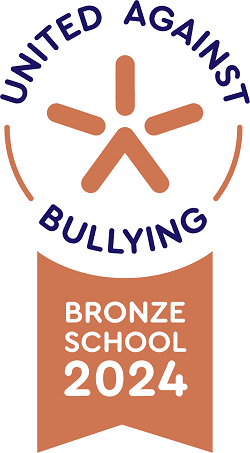Year 13 student, Ameilia T, produced this article following an opportunity to hear from a Holocaust survivor.
My name is Amelia and I am in year 13 studying History, German and French. Last year I took part in the Holocaust Educational Trust’s Lessons from Auschwitz Online Project and earlier this year, I became a Regional Ambassador for the Trust. As a Regional Ambassador, I have had the opportunity to meet Holocaust survivors Ruth Posner BEM and Lily Ebert BEM and hear their unforgettable stories, as well as hearing the powerful testimonies of Manfred Goldberg BEM and Tomi Komoly BEM through zoom. My aim as a Regional Ambassador is to share what I have learnt to ensure that the Holocaust is never forgotten.
On the 28th April this year, I had the incredible opportunity to hear from Holocaust survivor Lily Ebert BEM and her great-grandson Dov Forman at a Zikaron Basalon (literally meaning ‘memory in the living room’ in Hebrew) event for Yom HaShoah (the annual Jewish Remembrance day for victims of the Holocaust), hosted by the Israeli Ambassador to the UK. Hearing from Lily and Dov in person was something I’ll never forget. Lily’s optimism is truly inspiring and her main message to all of us was to never give up hope, because as long as there is hope, there is life. We discussed the role of social media and young people in Holocaust remembrance. I asked Lily how it makes her feel when she sees antisemitism still existing today and she told me that it makes her feel terribly sad but that we have to speak out against it, we can’t just let it happen. She emphasised that the Holocaust began with words, not with the camps, so when we see or hear antisemitism today, we can’t ignore it because we risk a similar atrocity happening again.
As part of my work as a Regional Ambassador, I was also particularly keen for students at my school to hear from a survivor. On Friday 22nd April, year 10 students had the incredible opportunity to hear Holocaust survivor Dr Agnes Kaposi MBE share her testimony.
Agnes was born in Debrecen, Hungary, in October 1932. At the age of four, Agnes moved to Budapest where she grew up. When she was just 11 years old, she witnessed several life-changing events. On 19th March 1944, Hungary was occupied by Nazi Germany, putting the lives of the remaining 800,000+ Jews* in Hungary at risk. In April of the same year, all Jewish adults and children above the age of six were forced to wear a yellow star on their clothing, marking them as so-called outsiders and inferior citizens. Agnes and her family moved back to Debrecen, but just a month later, a ghetto was created there. Agnes was forced to live in the ghetto for a month and during her talk she showed us photos of her grandmother’s house which was a part of the ghetto. On June 27th 1944, Agnes and her family were deported to Vienna, in incredibly cramped wagons full of people. The journey lasted 5 days and conditions were terrible. Agnes told us that this was the worst experience of her life. They arrived in Strasshof camp and were made to work as labourers on an agricultural farm. Agnes pretended to be older than she was (14) so that she could work and earn an extra food ration for her family.
Agnes and her family were liberated in April 1945 by the Soviets but this was not like the “typical” liberation that is often depicted in books and films; the liberators didn’t help them, they just removed the control of the Nazis. This ended the period of the yellow star and began that of the red star. Between the ages of 13 and 18, Agnes lived under a Stalinist regime. In 1956, when she was 24, the Hungarian Uprising took place and she and her husband decided to leave the country, making the 6-week journey to Cambridge, England. Since arriving in the UK, Agnes has become a mother and now a grandmother, she got her PhD and worked as a lecturer and has written multiple books.
The main thing that Agnes said she wanted us to take away from hearing her story was to think what it would be like to live through the things that others have been through. How would you like to be treated? What would you do if your life changed for the worse overnight? Ask yourself “how would I feel?” “How should I treat them?” “What can I do?”. Education is important, so what can I learn for now and for my future?
We’re very grateful to the Holocaust Educational Trust for facilitating this talk and of course to Dr Agnes Kaposi MBE for giving up her time to ensure that young people learn more about the horrors of the Holocaust, and the importance of fighting against hatred and intolerance in our society.
Holocaust survivors, like Lily and Agnes, will unfortunately not be here forever to share their stories. It is our responsibility to bare witnesses to the stories we have been told and to share their experiences. We must continue to keep educating those around us about the horrors of the Holocaust to ensure that it can never happen again.

